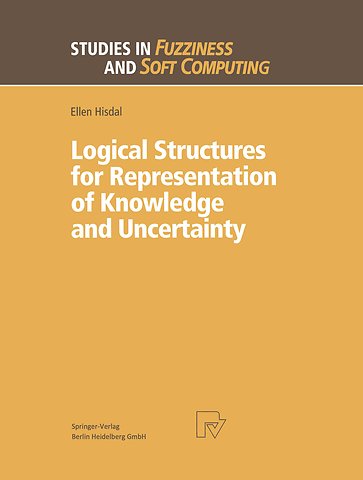Logical Structures for Representation of Knowledge and Uncertainty
Paperback Engels 2010 1998e druk 9783790824582Samenvatting
It is the business of science not to create laws, but to discover them. We do not originate the constitution of our own minds, greatly as it may be in our power to modify their character. And as the laws of the human intellect do not depend upon our will, so the forms of science, of (1. 1) which they constitute the basis, are in all essential regards independent of individual choice. George Boole [10, p. llJ 1. 1 Comparison with Traditional Logic The logic of this book is a probability logic built on top of a yes-no or 2-valued logic. It is divided into two parts, part I: BP Logic, and part II: M Logic. 'BP' stands for 'Bayes Postulate'. This postulate says that in the absence of knowl edge concerning a probability distribution over a universe or space one should assume 1 a uniform distribution. 2 The M logic of part II does not make use of Bayes postulate or of any other postulates or axioms. It relies exclusively on purely deductive reasoning following from the definition of probabilities. The M logic goes an important step further than the BP logic in that it can distinguish between certain types of information supply sentences which have the same representation in the BP logic as well as in traditional first order logic, although they clearly have different meanings (see example 6. 1. 2; also comments to the Paris-Rome problem of eqs. (1. 8), (1. 9) below).
Specificaties
Lezersrecensies
Inhoudsopgave
Rubrieken
- advisering
- algemeen management
- coaching en trainen
- communicatie en media
- economie
- financieel management
- inkoop en logistiek
- internet en social media
- it-management / ict
- juridisch
- leiderschap
- marketing
- mens en maatschappij
- non-profit
- ondernemen
- organisatiekunde
- personal finance
- personeelsmanagement
- persoonlijke effectiviteit
- projectmanagement
- psychologie
- reclame en verkoop
- strategisch management
- verandermanagement
- werk en loopbaan
